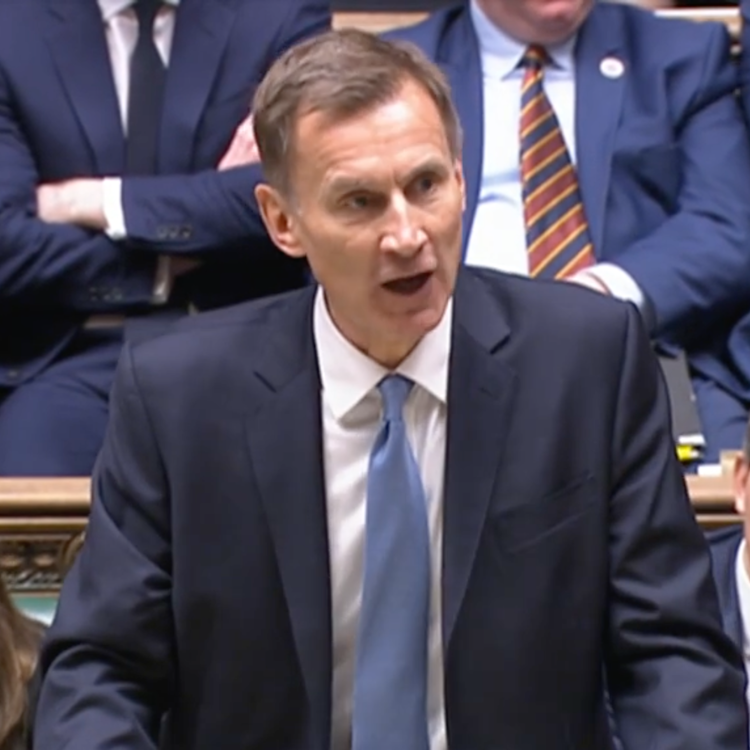The UK government announced Monday that it had secured an agreement from nine UK pension funds to invest at least 5% of their default funds into the nation’s startups and fast-growing companies by 2030 — a move hailed by VCs as an important step towards mobilising more capital for homegrown innovation.
The agreement, known as the Mansion House Compact, was announced during a speech by the chancellor, Jeremy Hunt, and concerns defined contribution (DC) funds, those to which employees and employers make regular contributions.
The move could unlock up to £50bn in assets from private DC pension schemes by 2030 if all such schemes in the UK committed to the agreement, according to the government. For comparison, UK tech raised £24bn in 2022. Hunt said in his speech that DC pension funds in the UK currently invested under 1% of their assets in unlisted equity.
The agreement will “unlock capital from the private sector delivering growth not by subsidy, but by increasing support for entrepreneurs and investors who take risks to create long-term value,” Hunt said, reiterating the government’s desire to turn the UK into “the world’s next Silicon Valley and a science superpower”.
Hunt added that the government would open an consultation on "doubling the existing local government pension scheme allocations in private equity to 10%, which could unlock a further £25bn by 2030” — that is, further opening some public pension pots to venture capital, alongside private pension providers.
In total, Hunt’s reforms could unlock an additional £75bn to be invested into fast-growing companies in the UK by 2030, the government claimed.
UK investors and VCs have long called for the country’s institutional investors — most crucially pension funds, with their massive $3.6tn in assets — to invest more in UK tech.
“While much has been done to support the country’s venture capital ecosystem over the years, it has been focused on direct government support and tax incentives which primarily benefit early-stage companies. Growth capital has been sourced largely from international investors, with great difficulty, but also great success,” said Anne Glover, CEO and founder at VC firm Amadeus Capital Partners.
“The UK institutional asset management community has largely been ‘missing in action’ and therefore not benefited from these exceptional returns. By participating in successful growth markets our pensioners not only benefit from the outperformance, but importantly the UK becomes the best place in Europe to grow its startups to scale.”
£400bn in assets
The signatories to the compact include some of the UK’s biggest pension schemes: Aviva, Scottish Widows, L&G, Aegon, Phoenix, Nest, Smart Pension, M&G and Mercers.
Hunt said that these funds, with over £400bn in assets between them, represented two thirds of the UK’s DC workplace pensions market.
“It's excellent to see initiatives like this, encouraging the market to create more innovative high-growth UK companies, and in doing so to provide a better retirement for the country’s savers,” said Will Wynne and Andrew Evans, cofounders of signatory Smart Pension, which manages over £3bn in assets.
“Naturally, we are delighted to support this, and proud to be signatories, investing on behalf of our members to support the UK’s tech sector further, to help more home-grown startups and scaleups to flourish and to deliver for pension savers.”
Hunt estimated in his speech that the reforms could increase the retirement income of an average earner by over £1,000 a year.
Challenges remain
Michael Moore, CEO of the British Venture Capital Association (BVCA), says that while the reforms are a step in the right direction, it will be crucial to watch how the consolidation of pension schemes plays out.
Hunt said that the government would take steps to consolidate DC pension schemes so fund managers could better maintain a diversified portfolio — smaller pools of capital make it harder to invest in different asset classes, particularly private markets where entry tickets can be in the several millions of pounds, experts say.
“The UK remains a massive outlier in having 28k defined contribution pension schemes — until we get real scale in our pension system these reforms can only be the start,” Moore says.
Jeegar Kakkad of the Tony Blair Institute says that the government’s plan lacks the sense of urgency that the UK needs. “2030 is a long way away,” he says. “There are a lot of great startups in the UK that are lacking scaleup capital today. Even with the 5% announcement, there is a mismatch between what is needed today and what is being provided.”
A plan to reform public listing
The Treasury will tap the British Business Bank for suggestions on how the government can help set up investment vehicles to funnel money into growth companies, Hunt said.
Hunt also used the opportunity to announce that the government would take steps to make public listings in the UK more attractive for fast-growing companies.



